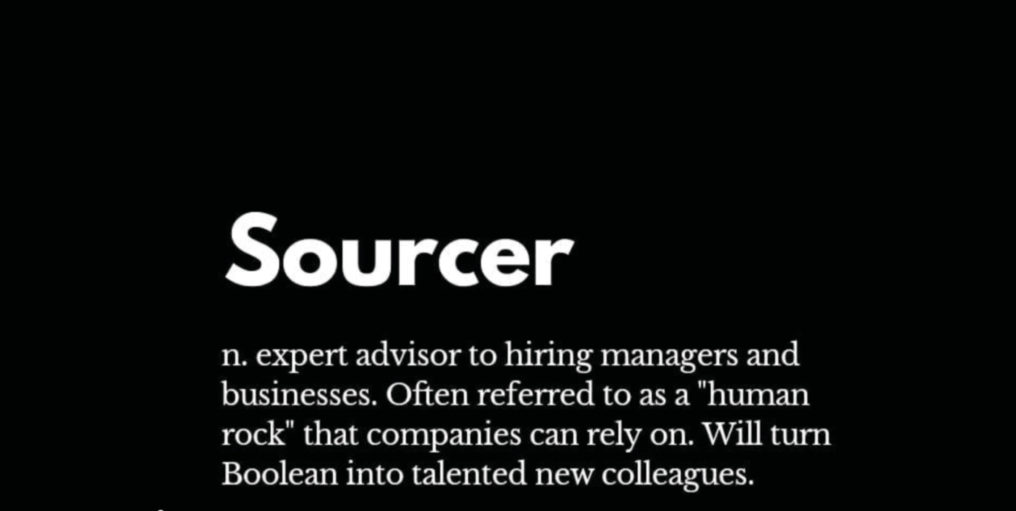Sourcing is getting more famous every day. According to HelloTalent, 80% of passive candidates are open to opportunities. If you also take into account that a sourced candidate goes through the pipeline in 45 days (against 52 days for an applicant), I believe I don’t have to further explain why 😉
Holy cr*p; this damn tight labour market is making it really hard to attract talent. According to Monster, 67% of the Recruiters have noticed it’s more difficult. And because of this, big corporates seem to be spending millions of euros on their ‘post-and-pray’ job marketing. Hoping to attract some people that can solve their problem with a smile on their face.
With sourcing becoming more popular and effective for attracting the right talent (in certain markets), traditional job marketing is becoming less valuable for the average company.
What is a sourcer?
If you’d ask someone what a Sourcer is, most people wouldn’t have a clue (shout out to my homie Reggie for the definition above!). But if they do, they’d describe it as “people that scrape a website for emails and phone numbers” OR “they use 7.1281805 tools to find, track, stalk and seduce people to talk with them about irrelevant stuff.” Even recruiters seem to see Sourcers as the R2D2’s of Talent Acquisition!
And you know what, somehow I understand why people think like that. Last year I attended quite a lot of sourcing/recruiting events and a lot of talks are solely about tools and hacks. It’s like “let’s cram as many tools into this hour as possible.” Yep… you lost me after tool 14. But is sourcing really about the tooling? Does the tooling make the Sourcer? I surely hope not!
What is sourcing?
For me, sourcing it’s about the mindset and ability to deeply understand the question. It’s about gathering (and understanding) the data, create market insights and act upon it.
Recently a recruiter came up to me with a sourcing question. Kaggle had changed the way they’d built up their URL (from something like www.kaggle.com/users/*username* to www.kaggle.com/*username*. The question was: “With these changes, is it still possible to source Data Analysts using Kaggle?
Kaggle probably knew that Sourcers were lurking around on their site to find potential candidates so they made it a bit more difficult to reach their users. But is it really more difficult? Definitely not if you ask me! It’s again the ability to deeply understand what has been asked.
First, we observed the profile of a user in Kaggle. What are the fixed components in the profile? In this case, every user profile has the subjects “x”, “y” and “z”. This is a unique combination on the Kaggle profile page, no other part of the site has these 3 subjects on a page. This means that, if we use those 3 components in my Google Boolean search (site:www.kaggle.com (“x” “y” “z”) “data analyst”) I will just find user profiles from people who name themselves Data Analyst.
This is, for me, one example that sourcing is a mindset.
The tools can help a person to source, but the ability to understand the question and solve a puzzle is something there’s no tool for.
FIRST YOU HAVE A PROBLEM, THEN YOU PICK THE TOOL TO SOLVE THE PROBLEM. The problem is always the starting point of thinking.
Sourcers; where would you be without your tools? Would you still be able to add value if all your chrome extensions would stop working tomorrow?
I believe I would, but I have to admit: getting contact details would be a huge hassle 😉

